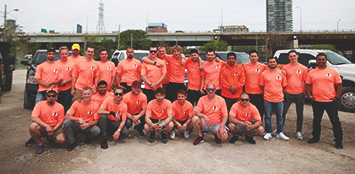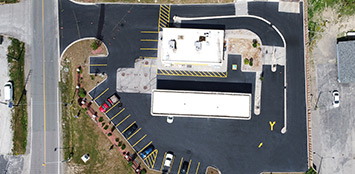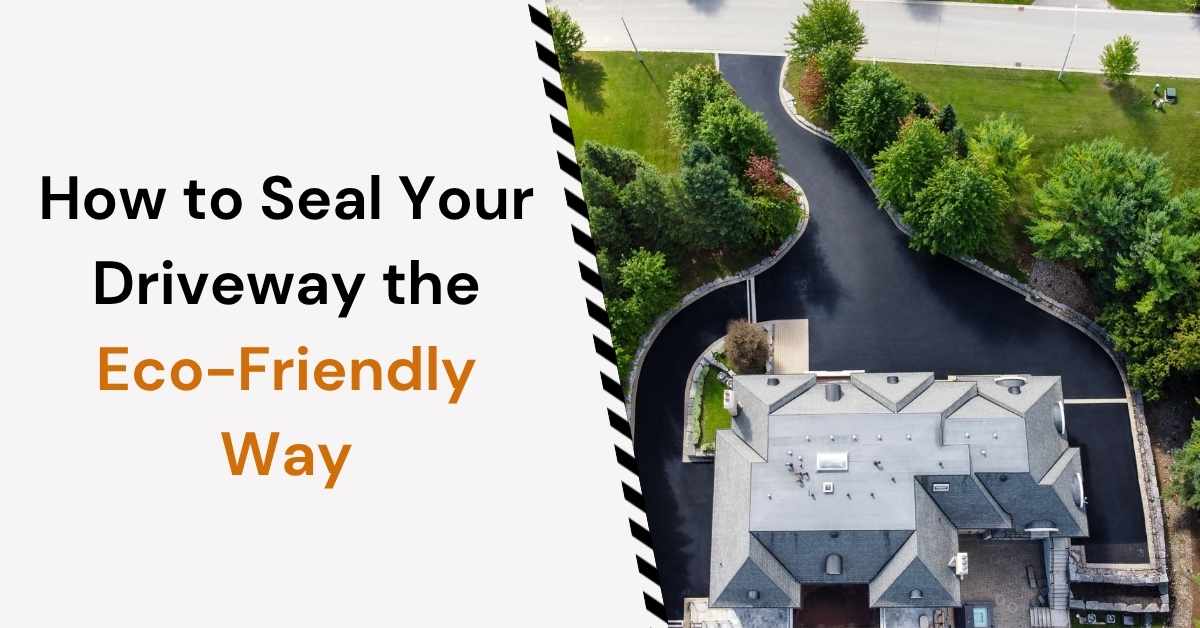Let’s be honest, most people don’t think twice about what’s in their driveway sealant. But those traditional, coal tar-based products? They’re a lot worse than they look. Not only do they give off a strong, chemical smell that lingers for days, but that smell is actually volatile organic compounds, VOCs, being released into the air. These fumes aren’t just unpleasant. They stick around. Did you wonder why sealing your driveway with eco-friendly products matters the most now?
The moment it rains, that sealant starts to break down, sending chemical runoff into storm drains, lawns, gardens, even the lake if you live nearby. Over time, it can poison the soil, damage your plants, and slowly work its way into the groundwater. If your home backs onto a ravine, a creek, or sits in a flood-prone neighbourhood, the risk multiplies.
As more homeowners pay attention to what goes on and into their property, the shift to non-toxic, low-VOC alternatives isn’t just about going green, it’s about making a smarter, healthier choice that protects your home and the area around it.
Why Traditional Sealing Isn’t Always Safe
Many conventional driveway sealants, especially coal tar-based ones, contain high levels of volatile organic compounds (VOCs). These VOCs contribute to poor air quality and can be hazardous when inhaled during and after application. They also pose risks to local waterways, especially when rainfall washes excess material into storm drains. If you’ve ever noticed a strong chemical smell from a freshly sealed driveway, that’s likely VOCs at work.
Beyond air pollution, some of these sealants can leach toxic materials into the soil, affecting nearby plant life and groundwater. For homes near lakes, rivers, or sensitive natural areas, these effects are magnified. That’s why sealing your driveway with eco-friendly products is especially important in areas like the G1TA, where environmental regulations are getting stricter. It’s no surprise that cities like Toronto have placed restrictions or outright bans on coal tar-based products due to their environmental and health impacts.
What Makes a Sealing Method Eco-Friendly?
A sustainable sealing solution goes beyond just the label. True eco-friendly sealing considers the product’s ingredients, the way it’s applied, and the long-term impact on both your property and the surrounding environment. Look for options that:
- Are water-based or bio-based (like soybean or linseed formulations)
- Contain low or no VOCs
- Are free from PAHs (polycyclic aromatic hydrocarbons)
- Reduce runoff risk with proper application techniques
- Extend the lifespan of your driveway, limiting future material use
The goal isn’t just to protect your asphalt, it’s to do so responsibly and intelligently, especially in high-rainfall areas like Southern Ontario, where improper sealing can easily impact stormwater systems.
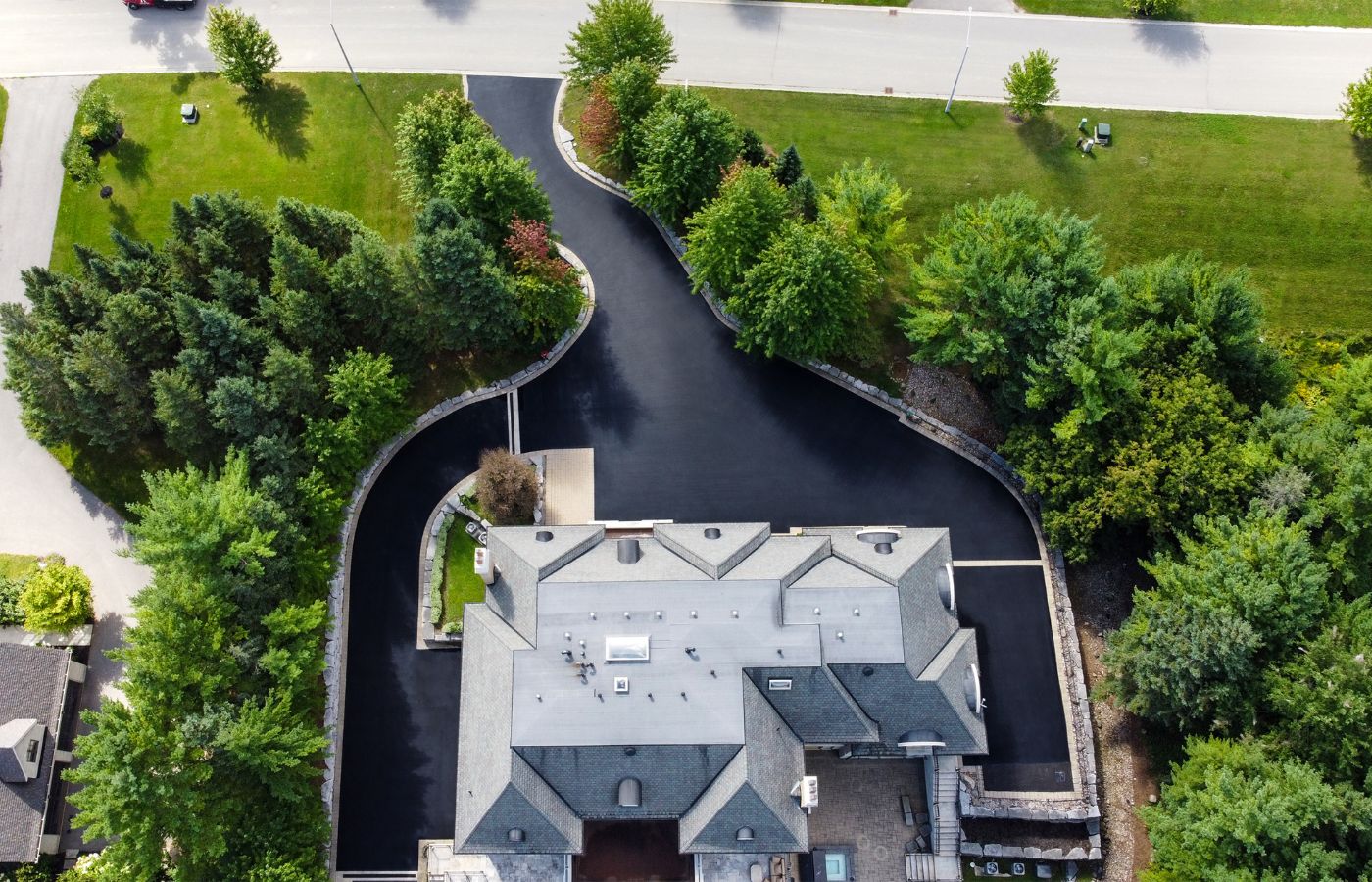
Eco-Friendly Sealing Methods That Work
1. Use Low-VOC or Bio-Based Sealants
Modern eco-sealants are light years ahead of what was available a decade ago. Water-based acrylics and plant-based sealants now offer comparable durability without the harsh chemicals. Look for products labeled as low-VOC or zero-VOC. These still provide the UV protection and water resistance you need, but with far fewer pollutants released into the air. Many of these formulas are approved for use in environmentally sensitive areas and meet Green Seal or LEED standards.
2. Don’t Skip Crack Filling
Filling driveway cracks early is one of the most overlooked steps in sustainable driveway care. Letting small fissures expand leads to costly repairs and wasteful full resurfacing. High-quality, eco-safe crack fillers, usually latex-based or rubberized, can seal these gaps quickly. This reduces the chance of water seeping under the surface, preventing freeze-thaw damage in colder climates like those found in Pickering, Vaughan, and Mississauga.
3. Apply Sealant in Thin, Even Layers
More is not better when it comes to sealant. Overapplication can lead to runoff during rain, wasted material, and uneven surfaces that wear out faster. The eco-friendly approach is about precision. A properly trained team knows how to apply just enough for full coverage without excess. That’s what we do at Action Paving, minimize waste, maximize performance.
4. Use Sealants Without Harmful Chemicals
Some eco products are designed specifically for use near water features or in gardens, meaning they break down safely without leaching toxins into the soil. These include soy-based sealers or calcium-based stabilizers. If your property backs onto a ravine or conservation land, these options should be your go-to.
5. Work with Professionals Who Get It
The best products still need skilled hands to be applied correctly. At Action Paving, our team uses tools and methods that prioritize both driveway protection and environmental safety. From prepping the surface with non-toxic cleaners to using precision sprayers that reduce overspray, every step is focused on sustainability. Our clients across Durham Region, Scarborough, Markham, and Halton appreciate the detail and long-term thinking we bring to every project.
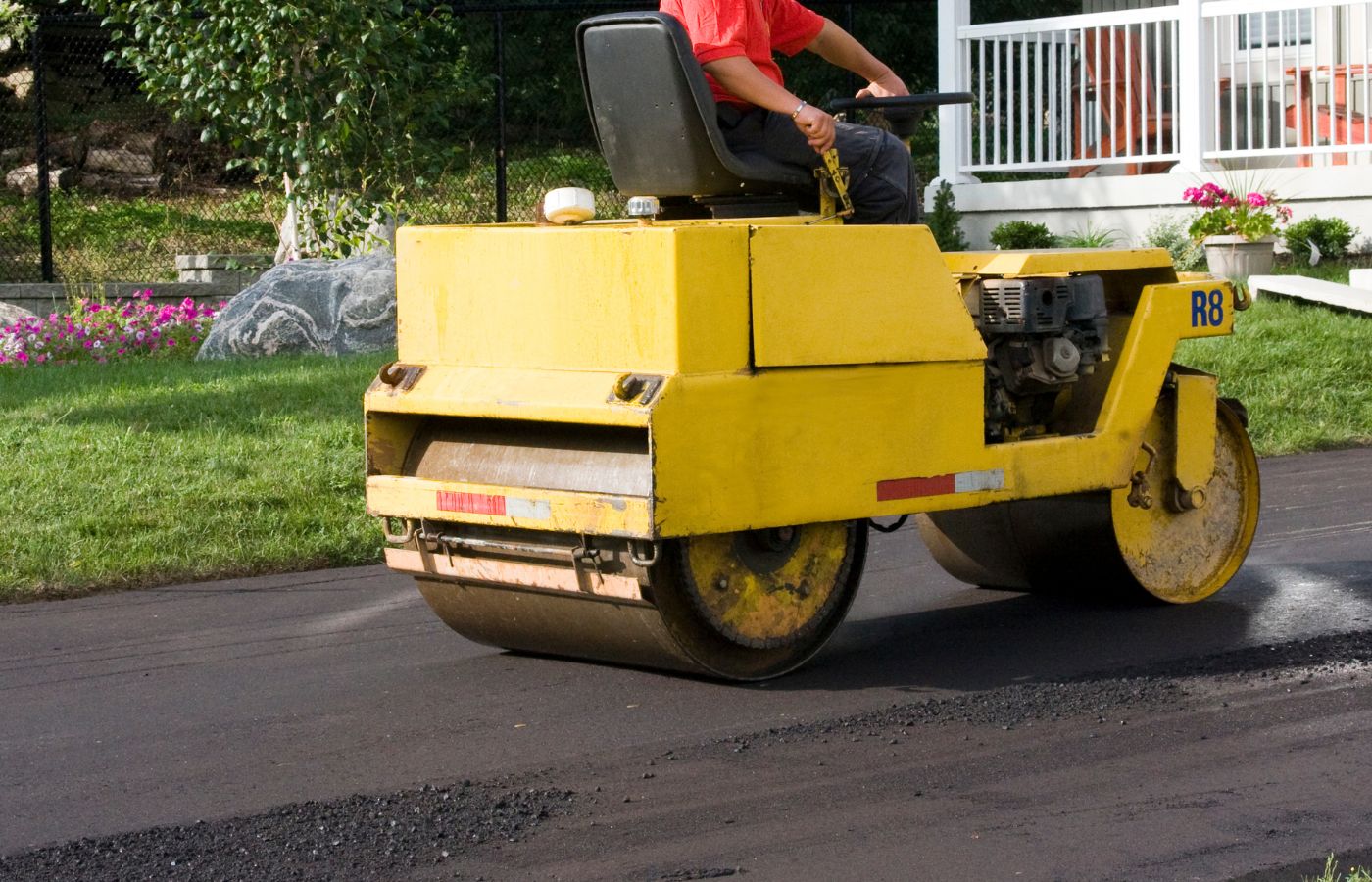
Real Benefits of Eco-Friendly Sealing
Eco-sealing isn’t just about feeling good, it’s about real, measurable advantages for your home and the environment. Here’s how it pays off:
| Eco-Friendly Feature | Benefit |
|---|---|
| Low-VOC Sealants | Improved air quality and reduced health risks |
| Crack Prevention | Minimizes need for repaving, reducing waste |
| Water-Based Formulas | Safe for plants, pets, and nearby storm drains |
| Smart Application | Less product waste and longer sealant life |
| Natural Ingredient Options | Biodegradable and non-toxic |
How Often Should You Seal a Driveway with Eco-Friendly Products?
On average, eco-friendly sealants need reapplication every 2 to 3 years, slightly more frequent than some petroleum-based products but with far less environmental cost. The benefit? These sealants age more naturally, without chipping or emitting fumes. We recommend a full inspection each spring after the freeze-thaw cycle to assess whether cracks need filling or edges need touch-ups. Regular maintenance helps you avoid full resurfacing, which is both costly and resource-intensive.
Local Factors That Affect Your Sealing Choices
In the GTA, weather conditions and soil types play a huge role in how driveways age. In Pickering, the mix of clay and sandy soil makes proper drainage critical. That’s why water-based eco sealants work well, they breathe better and resist cracking. In places like Oakville or Burlington, where trees and garden beds are close to paved areas, non-toxic sealers prevent contamination of nearby vegetation.
Urban areas with older stormwater systems, like Toronto or Hamilton, benefit the most from sealants that reduce chemical runoff. Every decision you make, from the type of crack filler to how often you re-seal, can help reduce the environmental burden on your neighbourhood’s infrastructure.
Eco-Friendly Sealing Your Home Driveway with Action Paving
We understand that homeowners want a clean, protected driveway without feeling like they’re making a trade-off. That’s why we focus on eco-friendly sealing that puts your family’s safety and your property’s health first. Our team works with low-VOC, non-toxic materials and uses application methods that prevent waste and protect surrounding soil and water. Whether you’re in Ajax, Richmond Hill, Brampton, or right here in Toronto, we offer customized eco-friendly sealing solutions that fit your property’s needs and your values.
To learn more or book a quote, contact us today and ask about our sustainable driveway maintenance packages. Let’s protect your driveway and your neighbourhood, together.

